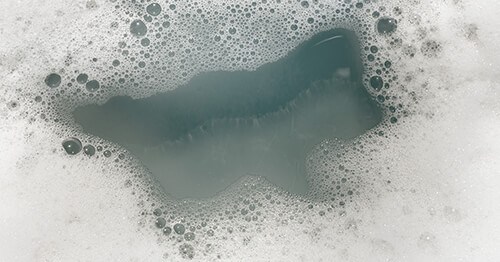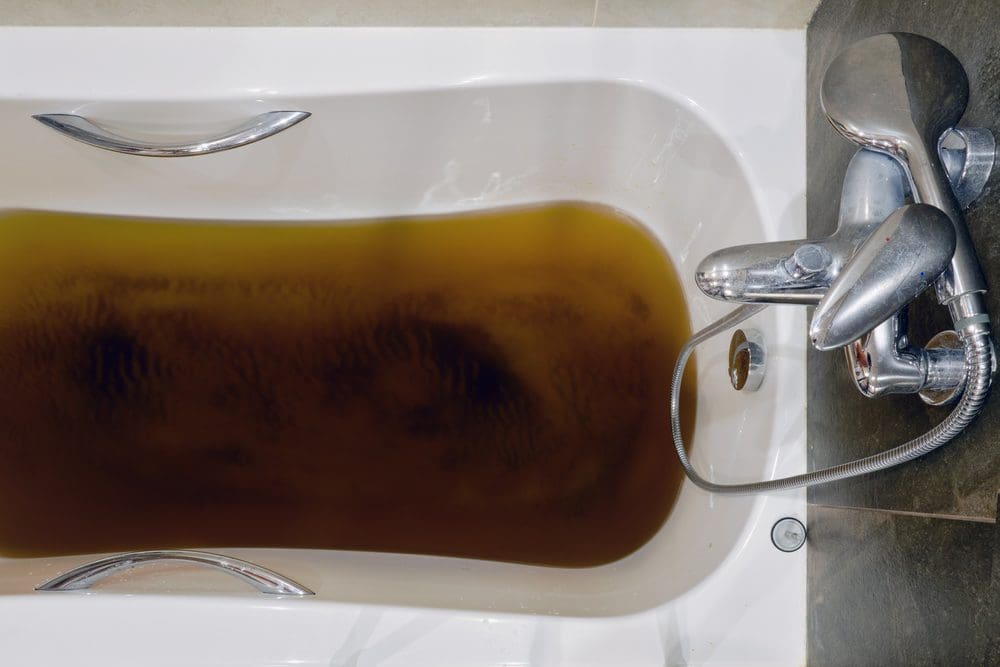Significant Explanations for Drainage in the Bathtub
Significant Explanations for Drainage in the Bathtub
Blog Article
Are you currently looking for critical information about Water Coming up Bathtub Drain?

Sewer back-up in the bathtub can be a stressful and unhygienic problem for any kind of homeowner. Not only is it troublesome, however it also positions significant wellness risks and shows underlying problems with the plumbing system. Recognizing why sewage is coming up with the bathtub is important for taking suitable action to attend to the issue efficiently.
Introduction to the Problem
Comprehending the Trouble
When sewage starts backing up into the tub, it's a clear sign of a problem with the drainage system. The wastewater that should be streaming away from your home is instead discovering its way back right into your living space, which can lead to significant damages and health hazards.
Potential Reasons
Several elements can add to sewage back-up in the bathtub. From blockages in the drain line to problems with the plumbing framework, determining the origin is vital for locating a remedy.
Common Reasons for Sewage Backup
Obstructions in the Sewage System Line
Among one of the most common sources of sewage back-up is a blockage in the drain line. This can happen because of the build-up of debris, grease, or foreign items in the pipes, avoiding appropriate circulation and causing sewage to support into your bath tub.
Tree Origin Breach
Tree origins seeking moisture and nutrients can penetrate sewage system lines via small cracks or joints. Over time, these roots can grow and increase, causing considerable damages to the pipelines and bring about sewage backup concerns.
Aging Framework
Older homes may have dated plumbing systems that are a lot more vulnerable to corrosion, fractures, and degeneration. As pipes age, they end up being a lot more susceptible to leaks and obstructions, enhancing the possibility of sewage back-up cases.
Heavy Rainfall or Flooding
During periods of heavy rainfall or flooding, the drain system may end up being overwhelmed with excess water, triggering backups and overflows. This can lead to sewer supporting right into bathtubs and various other fixtures inside the home.
Health Risks Related To Sewer Backup
Contamination of Water System
Sewer back-up can pollute the water system in your home, positioning a severe health and wellness risk to you and your family members. Exposure to polluted water can bring about gastrointestinal issues, skin infections, and various other ailments.
Spread of Illness
Sewer has damaging germs, viruses, and bloodsuckers that can create a series of illness, consisting of liver disease, cholera, and gastroenteritis. Coming into contact with sewage or contaminated surfaces puts you at risk of infection.
Mold Development
Dampness from sewage back-up can produce optimal problems for mold and mildew growth in your home. Mold and mildew spores can exacerbate respiratory issues and cause allergies in sensitive individuals, making timely clean-up essential.
Indications of Sewage Back-up
Foul Odors
Undesirable smells originating from drains or fixtures, specifically in the shower room, might indicate sewage backup problems. These smells are typically solid and relentless, signaling a problem that requires immediate focus.
Slow Draining Fixtures
Bathtubs, sinks, and commodes that drain gradually or not in any way could be experiencing sewer backup. If multiple components are impacted simultaneously, it's likely that the concern stems from an usual point, such as the primary sewer line.
Gurgling Sounds
Unusual gurgling or gurgling noises coming from drains pipes when water is running in other places in your home are a measure of air trapped in the plumbing system. This air accumulation can arise from sewer back-up and need to be investigated without delay.
Immediate Actions to Take
Switching Off Supply Of Water
In case of sewer backup, it's important to switch off the water supply to prevent further contamination and damages. Situate the primary water shutoff valve in your home and closed it off till the problem can be dealt with.
Calling an Expert Plumber
Handling sewer backup is not a do it yourself job. Get in touch with an accredited plumber with experience in dealing with sewage-related issues to examine the situation and carry out essential fixings or cleanups.
Staying Clear Of Contact with Infected Water
Until the sewer back-up is settled, stay clear of contact with polluted water to stop the spread of microorganisms and virus. Use protective equipment if you should remain in the afflicted location and clean your hands thoroughly afterward.
Preventive Measures
Routine Upkeep of Drain Lines
Arrange regular examinations and upkeep of your drain lines to identify and resolve possible issues prior to they intensify into major troubles. This can include cleaning out particles, inspecting for tree root intrusion, and fixing any damaged pipes.
Setting Up Backwater Valves
Consider setting up bayou shutoffs in your plumbing system to avoid sewage from receding right into your home throughout periods of heavy rainfall or flooding. These valves instantly close when water starts backing up, safeguarding your home from contamination.
Correct Disposal of Home Waste
Stay clear of purging anything apart from bathroom tissue and human waste down the toilet to stop clogs and clogs in the sewer line. Dispose of oil, oil, and other family chemicals properly to reduce the threat of plumbing problems.
Cleaning Up After Sewer Backup
Sanitation Procedures
Extensively sanitize and disinfect affected areas after sewer backup to remove damaging germs and stop mold and mildew growth. Use appropriate cleaning products and protective gear to make sure secure and reliable cleanup.
Repair of Influenced Locations
Fix any kind of damages to floor covering, walls, or fixtures caused by sewage back-up. Relying on the extent of the damages, you might need to replace carpets, drywall, or various other materials to recover your home to its pre-loss condition.
Why is There Sewage Coming Up Through the Bathtub
Sewage in your bathtub is a major problem that can make you want to abandon the bathroom for good. You don’t have to. However, it is important to identify the source of the issue and take the necessary steps to resolve it in order to avoid any health risks and property damage. In this article, we will discuss what could be causing sewage to back up through your bathtub so you can take action quickly and effectively.
The Main Reason For Sewage Backup in The Bathtub
All the sinks and toilets in your home connect to different pipes that lead to the main sewer line. The sewer line then connects to the municipal sewer system. This connection works seamlessly on a daily basis, but there can sometimes be a problem with the main sewer line.
The most common cause of sewage backup is a clogged or blocked main sewer line. The main sewer line can be clogged due to the accumulation of debris, tree roots or grease buildup, or other materials. Another possible cause is a collapsed pipe. When this happens, your toilets and sinks won’t be able to drain properly. This is when sewage starts backing up through the bathtub. If the problem has been occurring for some time now, it might be time to consult with a plumber as there may be more severe damage that needs fixing.
How Can You Tell if it’s Coming From Your Sewer Line?
If you’re experiencing a sewage backup in your bathtub, then you can use a few simple methods to determine if it is coming from the main sewer line. First, try to unclog the tub drain with a plunger or an auger and see if that helps. If not, then inspect all of the drains in your house and check if there is any blockage in them. If some of the other drains are not working fine, then it’s likely the problem is with your main sewer line.
Common Signs of a Clogged Main Sewer Line
If you suspect that your main sewer line is blocked, then there are a few common signs to look out for. Frequent clogs in your home are a sure sign of a clogged sewer line. You can also check for slow drainage from all the plumbing fixtures.
Slow Drains
If you notice that it takes longer for your sinks and toilets to drain, then this could be a sign of a clogged main sewer line.
Frequent Clogs
Another common sign is that your drains or toilets become clogged almost all of the time. If this happens, then it could be a sign that the main sewer line is blocked.
Water Backup
Do you notice water or sewage coming back up from any of the drains in your home? If your answer is yes, you may have a clogged main sewer line.
Sinkholes
If you’ve noticed sinkholes in your yard or overflowing sewage from the ground, you may be facing a blocked sewer line issue.
Your Shower or Sink Makes Gurgling Noises
Have you noticed gurgling noises coming from your sink or shower lately? These are typically signs of a blocked sewer line and should be checked out immediately.
How to Prevent a Main Sewer Line Clog
Once you’ve identified that your main sewer line is clogged, it’s important to take steps to prevent it from happening again. The best way to do this is to avoid putting any solid material that can clog the drain, such as grease and other debris. You should also be mindful of what you flush down your toilet. In addition, you should schedule regular maintenance for your main sewer line. This will help keep it clear and free from clogs or backups.
What Should You do if You Notice Sewage Backing up Through The Bathtub?
If you’ve noticed sewage backing up through the bathtub, then it is important to call a professional plumber immediately. A plumber can inspect the situation and determine what the cause is, such as a blocked main sewer line. They will also be able to advise you on how best to fix the issue. In some cases, a simple drain cleaning may be all that is needed.
However, if the blockage is severe, then your plumber may need to use more advanced methods to clear the blockage.
No matter what, it is important to always call a professional plumber if you experience any kind of sewage backup. They will be able to assess the situation and provide you with a solution that is best for your home.
https://baylorinc.com/blog/why-is-there-sewage-coming-up-through-the-bathtub/

I hope you liked our post about Water Coming up Bathtub Drain. Thanks for taking a few minutes to read through our post. Sharing is good. Helping people is fun. I love reading our article about .
Book A Service Call
Report this page